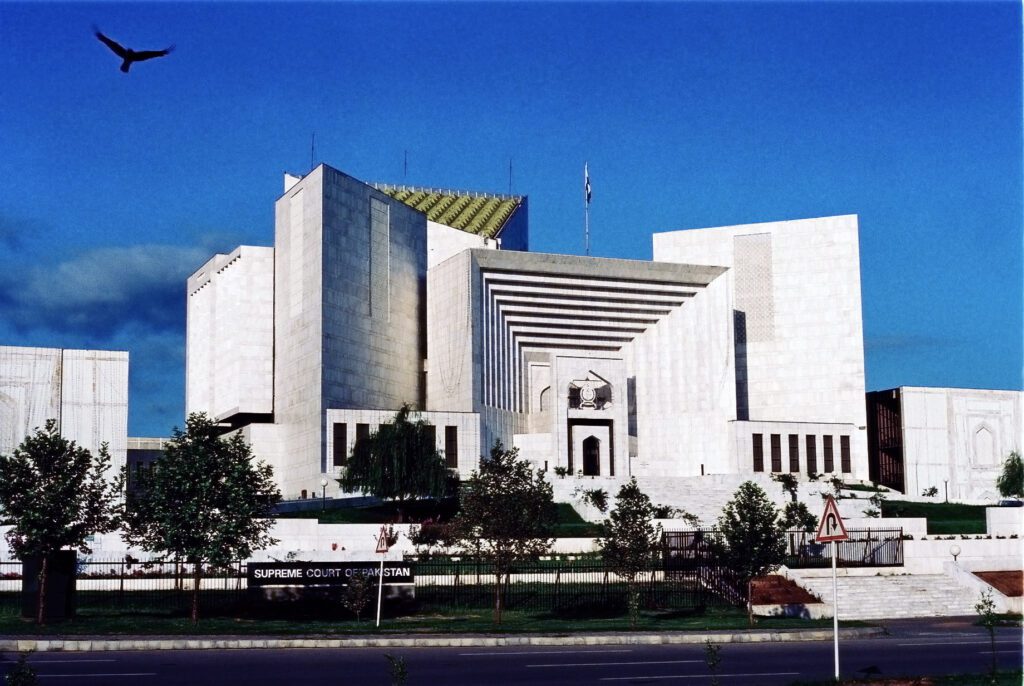- Web Desk
- Feb 24, 2026
May 9 riots: civilian trials in military courts to continue after SC goes back on its own order
-

- Hum News
- Dec 13, 2023

ISLAMABAD: The Supreme Court of Pakistan has issued a stay order against the declaration of civilian trials in military courts as unconstitutional.
This move effectively suspends the decision to halt the trials of civilians in military courts, marking a potential turning point in the ongoing debate over the jurisdiction of military courts in trying civilian cases in Pakistan
The judgment was passed by a majority of 5 to 1 with Justice Musarrat Hilali disagreeing with the majority decision.
The next hearing in the case has been stretched to the third month of January 2024.
The Supreme Court has permitted the continuation of civilian trials in military courts, according to legal experts who further clarify that the final decision regarding trials in military courts will be contingent on the verdict of the Supreme Court.
BACKGROUND
The Supreme Court of Pakistan had ruled that accused individuals in May 9 riot cases will not face trial in military courts but rather in criminal courts of competent jurisdiction, as stipulated by the country’s ordinary or special laws.
This decision prompted appeals from the interim federal government and provincial governments of Balochistan, Khyber Pakhtunkhwa, and Punjab. However, Sindh’s government has not filed a similar appeal.
The Defence Ministry also submitted an Intra-Court Appeal (ICA) to the Supreme Court, requesting a suspension of the judgment’s enforcement while the appeal is under consideration.
Justice Ijazul Ahsan, a member of the three-judge committee responsible for assigning cases to different benches, raised concerns over the formation of the bench hearing these appeals.
He advocated for a seven-judge bench, given that the original judgment was made by a five-judge bench, but a six-judge bench was constituted instead, led by Justice Sardar Tariq Masood.
Former Chief Justice Jawwad S. Khawaja, challenging the military trials, also objected to Justice Masood’s participation in the bench. The bench, including Justices Aminuddin Khan, Muhammad Ali Mazhar, Syed Hasan Azhar Rizvi, Musarrat Hilali, and Irfan Saadat Khan, proceeded to hear 17 ICAs.
The Supreme Court, while upholding the continuation of trials for 103 civilians, clarified that final judgments by military courts would be subject to the Supreme Court’s directives.
At the hearing, Justice Masood declined to recuse himself despite objections. Attorney General Mansoor Usman Awan and other counsels debated the legitimacy of private legal representation for the government and the bench’s composition.
The Defence Ministry’s counsel, Khawaja Haris, argued that the Supreme Court’s October 23 verdict did not specify which constitutional articles or provisions of the Army Act were deemed unconstitutional. He referenced previous cases to support the military’s jurisdiction over certain civilian cases.
The ICAs challenge the Supreme Court’s decision, arguing it oversteps its jurisdiction and undermines the armed forces’ constitutional role, as defined in Article 245 (1) of the Constitution.
The appeals contend that civilians accused of offences with a direct nexus to the armed forces should be triable under the Pakistan Army Act, as established in prior legal precedents.




